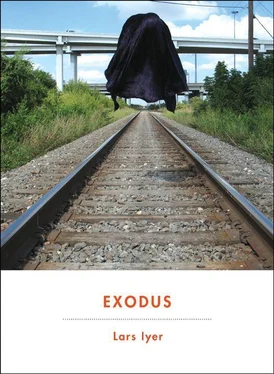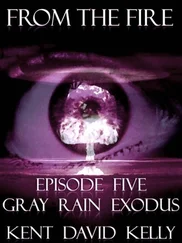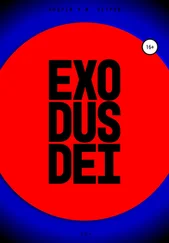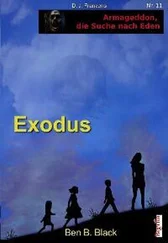We’re not young enough! W. says, as we step from the train. Not ardent enough! We are what must be overcome. We need to be purged, we agree. Put up against the wall as counter-revolutionaries. And only then, without us, might liberation unfold. Only then might the world begin to overcome its bondage.
Breakfast. Muffins and orange pekoe tea. A fitting repast before revisiting his alma mater, W. says. He’s returning to the spawning ground of his academic life, like a salmon leaping upriver.
How many years has it been? W. wonders. How long, since he left the University of Essex? How long, since they all left, he and the other former Essex postgraduates? Ah, what would they think of him now, his erstwhile comrades?
Those were political times, W. says. The late ’70s, the early ’80s … Memories of the revolts of May 1968 were still alive. Memories of British Sounds , the film Jean-Luc Godard made on Essex University campus.
W. describes the last scene: a bloodied hand rising from the mud. — ‘Godard cut his own hand for that. He wouldn’t use fake blood’.
We should cut our own hands, W. says. Our own throats! Then people might believe us. Then they might believe that we have something to say.
He had a very strange dream the other night, W. says. The two of us were on trial for something serious — what, he didn’t know. The courtroom was deserted, W. says. There was no judge there to bang the gavel. No defence team, no prosecution. No policemen. But we were guilty, we knew we were. We’d found ourselves guilty …
‘Has our time come?’, W. asked me. Ages ago, I told him. — ‘Then what’s keeping them?’, he asked. The judgement came too late, I told him. There are no hangmen, there is no firing squad. The army have all deserted their posts. The very institutions of the law are empty, their doors swinging open, files blowing about in the wind.
‘Then who will carry through the sentence?’, W. asked. There’s no one to carry through the sentence, I told him. — ‘Who will lead us to the gallows?’ There’s no one to lead us to the gallows. — ‘Are we to strangle ourselves?’ I’ll strangle you, and you strangle me, and we’ll see where that gets us, I told him.
The real philosopher has philosophical dreams, W. says. Leibniz dreamed of monads, and Spinoza of infinite substance. Heidegger dreamed of the Being of beings, and Levinas of the face of the Other.
He only dreams of me, W. says. What does that mean?
Interrogative schoolgirls on a Colchester bus. — ‘Where are you going?’ ‘Why do you dress like that?’ Yes, where are we going? Why do we dress like this? The nine-year-olds are panicking us. — ‘Didn’t anyone tell you not to talk to strangers?’
Essex University. Straight to the Student Union. — ‘We’ll be in the bar’, we’ve told everyone we know. Constancy is always admired, we agree. People should know where to find you.
We order beers, then whiskey, then beers, then whiskey, then chips, then beers, then whiskey, then another beer and another whiskey, then chips. A balanced diet, W. says. All the major food groups.
Essex Student Union bar. This is where he used to drink as a postgraduate, W. says. It’s where he learned to drink, he who had been near-teetotal before — and to smoke, he who had never smoked a cigarette in his life.
Do I have any sense of what it was like to feel part of a generation ? W. says. Can I understand what it was to have something expected of you, to have faith placed in you? A sense that something was happening — something that could only have happened there and then ?
Did they think they could change the world? I ask him. Not the world, but thought, W. says. They believed that they could change thinking, that they were the beginning of something, a new movement, that they augured what Britain might become: a thinking country , just as France is a thinking country , just as Germany was a thinking country .
This is where they spoke, W. says, and of great things. This is where they spoke — can I understand what that means? To speak, to be swept along by great currents. To be borne along, part of something, some ongoing debate. And for that debate to have stakes, to matter . For thought to become personal , to concern the most intimate details of your life. Ah, how can he convey it to me, who has never known intellectual life, intellectual friendship, who barely knows what friendship means, let alone the intellect?
A life of the mind , that’s what they’d chosen. A life of the mind for postgraduates from all over Britain, a kind of internal exile . Because that’s what it means to be a thinker in Britain: a kind of internal exile. They’d turned their backs on their families, on old friends. On the places of their birth. They’d turned from their old lives, their old jobs, old lovers. They’d travelled from the four corners of the country to be remade here, to be reborn. Essex, Essex: what joy it was in that dawn to be alive …
This is where they spoke , says W. very insistently. Do I know what it means to speak? This is where they argued. Do I know what it means to argue? This is where they fought in thought. And this is where they loved , too, says W. The Student Union Bar: this is where thought was alive, where thought was life, where thought was a matter of life and death …
This is where they spoke , W. says. Where voices trembled. Where voices rose. They laughed, and the laughter died away. Did they weep? No doubt there was weeping. No doubt some wept. This is where they promised themselves to thought. This is where they signed the covenant …
It was like serving together in a secret army, W. says. Even now, when he meets them, the former postgraduates of Essex, he sees the sign. Even now, it’s clear; they are marked — they were marked then. Thought was life. Thought was their lives. They were remade in thought’s crucible. They flared up renewed from thought’s fire.
They learned to read French thought in French, German thought in German. They studied Latin and ancient Greek. Imagine it: a British person reading ancient Greek! They crossed the channel and studied in Paris. They plunged into Europe and studied in Rome. They visited the great archives. They read in the great libraries.
They were becoming European , W. says. Do I have any idea what that meant: to become European ? Some of them even learned to speak other languages. Imagine it: a British person speaking French. Imagine it: a Briton in Berlin, conversing in German …
They went en masse to a two-week conference in Italy. Imagine it: British postgraduates en masse at a two-week conference in Italy. They played chess in the sun, and drank wine until their teeth turned red. Italy! The Mediterranean! Who among them had ever been to Italy, or the Mediterranean? Who had any idea of Italy, or the Mediterranean?
The sun burned them brown, imagine! Their pallid British bodies, brown. Their teeth, red. The sun turned them mad. They thought as Van Gogh painted: without a hat, and in the full sun. Hatless, in the full sun, they became madmen and madwomen of thought.
Essex broke them. Essex rebuilt them. Essex broke their Britishness, their provincialness. Essex gave them philosophy. It gave them politics. It gave them friendship, and by way of philosophy, by way of politics. They were close to Europe, terribly close. Like Hölderlin’s Greece, Europe was the fire from heaven for the Essex postgraduate. Like Hölderlin’s Germany, Britain, staid and dull, was to be set on fire by heaven.
Ah, what happened to them all, the postgraduates of Essex? W. muses. What happened to the last generation — the last generation of Essex postgraduates?
Читать дальше












